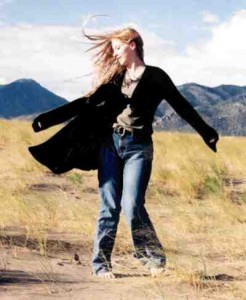Letter from Laurae Essman
Diction – April 2007 – Colorado Central Magazine
Dear Martha:
First an apology for being way behind on issues of Colorado Central which I sincerely enjoy reading. I just finished the February issue, and despite the fact that we are leaving town for three weeks, I had to sit down and express my opinion on your review of The Vote by Sybil Downing.
I will try to say this without shouting, but every time you used the word “suffragette,” I felt like screaming. Please consult one of your many dictionaries. In mine, “ette” is a diminutive ending. It certainly is that way when people want to express a lesser status. I know I don’t have to reel off some of those words.
When I read The Vote last fall, I was surprised that it was as good as it is, and I thought it was just about right for a Christmas gift for our granddaughter who was eleven years old. I feel that the book was valuable for her, and I thought the little romance would entice her to read it.
One of the reasons I push the book for adolescents is because so many young women are growing up with no knowledge about women’s suffrage. The suffragists’ history seems to correlate with events like evolution.
Well, I tried hard not to yell. I really like the way you express yourself and I wouldn’t give up the Colorado Central magazine if you used that “ette” forever more. Thanks for the opportunity to raise my voice once again.
Sincerely,
Larae Essman
Estes Park
Dear Larae,
Thank you for your forbearance. Like you, I find that some labels make me recoil (especially terms like “socialist” and “liberal” when they’re used as pejoratives rather than as applicable descriptions). But I suspect that “suffragette” will never be one of those terms — probably because I picked it up from my grandmother, who considered herself one. Also, in my defense, the word “suffragette” was more commonly applied to the movement in Great Britain, where it was purportedly coined as a pejorative, but subsequently adopted and flaunted by suffrage organizations (and my Nova Scotian grandmother didn’t become a U.S. citizen until 1939).
For better or worse, however, I frequently find myself using undiplomatic terms — usually because their impropriety doesn’t resonate with me for personal reasons. For example, I’ve repeatedly been told that the correct term is now “Chicano,” but since some of my forebears were Hispanic but not Mexican, “Hispanic” generally comes more naturally to me.
As for “suffragette” and other feminine suffixes like “actress,” “waitress,” and “usherette,” I find it somewhat disheartening to see them condemned, since once upon a time they were not necessarily derogatory. But today such labels are often viewed as sexist, and in some cases are doubtlessly employed to imply ineptitude or weakness.
However, I suspect that such terms are not the primary problem. Instead, people probably start to regard certain labels as offensive because the people they are used to describe are still the objects of undue prejudice, which in turn tarnishes the terms. And therefore, what we consider appropriate keeps changing — i.e. from Negro, to colored, to black, to African-American; from waitress to waiter to wait person to waitron to server; from alien, to foreign, to undocumented; and from Oriental to Asian….
Here’s to the day when references to sex, race, and place of origin will no longer be laden with deprecatory connotations. But that day has not yet arrived; so in the meantime, I will try to be more sensitive about negative appellations.
Martha


